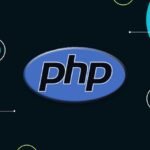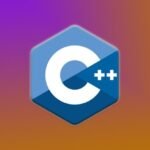Get the coupon in the end of description.
Description
This course will provide students with a comprehensive understanding of cloud computing, Linux, and LAMP stack. The course will cover the fundamental concepts and practical skills necessary to succeed in the field of cloud computing, from cloud computing service models to server deployment and management.
The course begins by introducing students to the core concepts of cloud computing, including its definition, benefits, and different models. Students explore the various types of cloud models such as private, public, and hybrid, as well as the service models, including Infrastructure-as-a-Service (IaaS), Platform-as-a-Service (PaaS), and Software-as-a-Service (SaaS). Here we highlight the growing significance of cloud computing in modern business, emphasizing the need for skilled professionals in this field. In this section we also explore the benefits and drawbacks of different cloud providers, and how to choose the right provider for their needs.
From there, students learn how to deploy cloud servers on Linode, a leading IaaS provider. We teach how to create and manage virtual machines, set up network and security configurations, and deploy web applications. Students also learn how to configure the Linode command-line interface (CLI) and use it to automate common tasks.
The course covers the foundations of the Linux operating system, including its history, architecture, and file system. Students learn how to use the command line interface to manage files and directories, perform administrative tasks, and automate common tasks using shell scripts. Linux is a crucial skill for anyone interested in cloud computing, as it is the most widely used operating system in the cloud infrastructure services market.
The final section of the course will cover the installation and configuration of LAMP stack, a popular open-source software bundle used for web development. The stack consists of Linux, Apache, MariaDB, and PHP, and is commonly used to develop web applications. Students learn how to install each component, configure Apache to serve web content, set up a MariaDB database, and write PHP scripts to interact with the database. LAMP is one of the most popular web development stacks, making it a valuable skill for anyone interested in cloud-based web development.
Throughout the course, students will have the opportunity to engage in hands-on learning and complete practical exercises to reinforce their knowledge. By the end of the course, students will have practical experience in deploying cloud servers on Linode, configuring the LAMP stack, and managing Linux-based systems.
There are no formal prerequisites for this course. However, it is recommended that students have a basic understanding of computer systems and programming concepts.
Students will be assessed through a combination of practical exercises, and a final project. The final project will require students to deploy a web application on a Linode cloud server and configure LAMP stack, demonstrating their mastery of the course concepts.
This course is an excellent opportunity for individuals looking to enhance their skill set and pursue a career in the exciting field of cloud computing. With the continued growth of the cloud computing market and the increasing demand for skilled professionals in this field, this course will provide students with the knowledge and practical skills necessary to succeed.





















